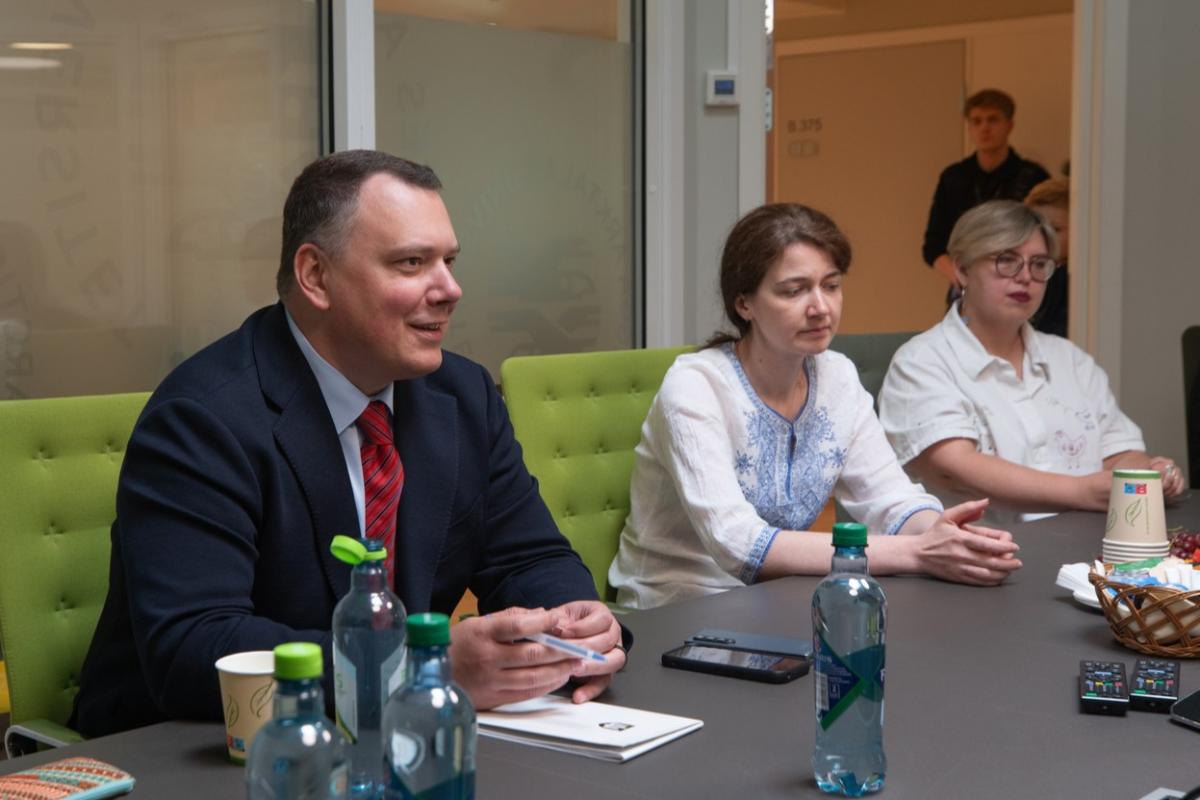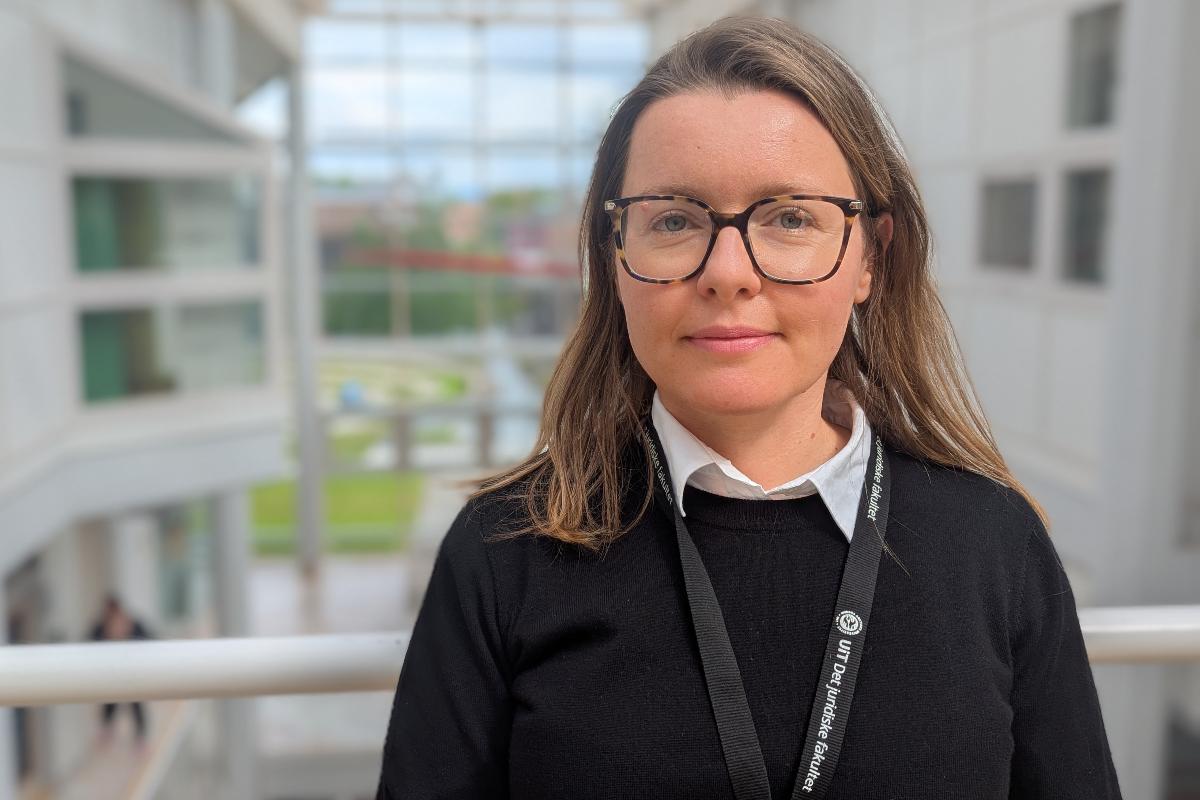"Remember that light always conquers the dark"
This week, Ukraine’s ambassador to Norway, H.E. Oleksiy Gavrysh, visited UiT for productive meetings and discussions aimed at building a better future.

"I am very happy to visit the northernmost university in the world, and I met a great team. I believe in deep cooperation between Ukrainian and Norwegian scientists," Gavrysh said.
During his visit, the ambassador met with Rector Dag Rune Olsen, Ukrainian employees at UiT and scientists involved in Ukraine-related projects.
UiT wants to help
UiT Rector Dag Rune Olsen expressed his satisfaction with the meetings:
"Today, we discussed how we can contribute to strengthening research and education in a Ukraine at war. It goes without saying that normal academic activity is extremely challenging and limited in Ukraine at the moment."

Gaiane Nuridzhanian, an associate professor at UiT’s Faculty of Law who has worked at UiT since 2020, specialises in human rights and international criminal law. She shared her research on the fairness and accountability of war crime trials taking place in Ukraine, as well as how to ensure that responsibility for starting the war is correctly assigned.
"It was very interesting to meet the ambassador and hear his many ideas on cooperation," Nuridzhanian said.
"He had specific suggestions on how UiT could support Ukrainian education, universities, and science, and in which fields collaboration with Ukrainian universities would be most beneficial. It was very reassuring."
Hopes for cooperation in a new future
Ambassador Gavrysh expressed gratitude for UiT’s support of Ukrainian universities and its efforts to host Ukrainian scientists and students. He also voiced optimism about finding new avenues for collaboration in the future.
"I have complete trust that this cooperation will be mutually beneficial," the ambassador said.
Rector Olsen echoed this sentiment, emphasising the potential for long-term collaboration:
"We have been discussing extended cooperation for the future, for the time when peace returns to Ukraine," Olsen said.
New skills for a future in Ukraine
Nuridzhanian admits it’s difficult to live away from Ukraine during a war in her homeland. She says it’s wonderful to see that Norway is so supporting of Ukraine and provides so much support to Ukraine.
"But I also see less flags and other symbols of support for Ukraine in Northern Norway than in other parts of Europe. Perhaps this is due to greater concern for the relationship with Russia in Northern Norway? It's a very interesting and complex region to be in during these times," she said.
The ambassador encourages all Ukrainians to take full use of all possibilities at UiT and elsewhere.
"You must get new knowledge, and new skills for a future in Ukraine," he said.
"And remember that light always conquers the dark."
The projects presented to the Ukrainian ambassador:
- Justice for Atrocity Crimes and Human Rights Violations Committed During the War in Ukraine. Presenter: Associate Professor Gaiane Nuridzhanian, Faculty of Law, Human Rights and International Law Research Group
- How to Make Ukrainian Accessible to Norwegians. Presenter: Associate Professor Yuliia Palii, Department of Language and Culture
- Deep Tech Innovation as a Driver for Green and Sustainable Transformation Across Europe. Presentation from The CloudEARTHi consortium’s cooperation projects with Ukrainian partners. Presenter: Assistant Professor Tamer Abu-Alam, lead of consortium, Department of Arctic and Marine Biology
- Ukrainian Refugees’ Experiences with Using Health and Welfare Services in Norway. Presenters: Professor Marcela Douglas Aranibar, head of Centre for Peace Studies, and Associate Professor Hege Kristin Andreassen, managing director of the Centre for Care Research
- Ukrainian Refugee Parents Resettling in Norway. Presenter: Associate Professor Lene-Mari Potulski Rasmussen from the Regional Centre for Child and Adolescent Mental Health North
- Multiple Challenges Around Understanding and Addressing "Grey Zone" or Hybrid Threats and Warfare. Presenter: doctoral research fellow Maria Claudia Nunes, member of the research group The Grey Zone